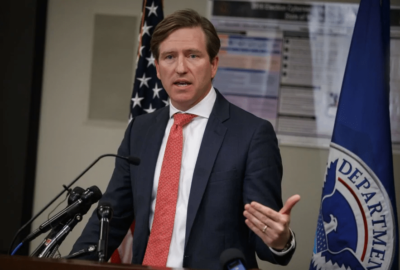
FDA takes hands-on approach to upskill workforce under data modernization action plan
The Food and Drug Administration is giving employees a chance to learn data skills through hands-on projects, with less emphasis on traditional classrooms and...
The Food and Drug Administration is giving employees a chance to learn data skills through hands-on projects, with less emphasis on traditional classrooms and coursework.
The FDA is launching a data modernization action plan focused in part on developing data skills within the existing FDA workforce and recruiting new hires with these in-demand skills.
FDA Chief Data Officer Ram Iyer, speaking Oct. 21 at an ACT-IAC event, said the data strategy looks to improve data capacity through “driver projects,” which add value to the agency but also help the workforce develop data skills through these hands-on tasks.
“Let’s say an example is a supply chain project: We should deliver the supply chain needs and forecasting for the agency. But we should also take this as an opportunity to improve our master data management, or data cataloging or pulling external data into the system. If you don’t do that, then we are just becoming an episodic organization that maybe just develops use cases and use cases, and then we are not learning anything from that.”
The strategy also focuses on data practices, which provide a reusable framework for how the agency should curate, use and share key data sets across multiple projects.
The data modernization strategy builds off momentum from a technology modernization plan the FDA launched in September 2019. Last month, the FDA also reorganized its IT, data and cybersecurity office to create the Office of Digital Transformation, which reports directly to the FDA commissioner.
Iyer said data modernization requires the agency to adopt a “product mindset,” that leads the agency to think about the benefits to end-users within FDA and across its partner agencies.
“There is a very big emphasis that we are doing all of this not in isolation, but to help us collect better data and make better decisions,” Iyer said.
Iyer said that this approach allows FDA to pull the plug on projects that don’t show results.
“The approach we take here is not to spend millions of dollars on the products and services, [but] what is the minimum product that we can actually respond to that, rather than making them wait six, nine, 12 months before we deliver something?”
For example, Iyer said he recently pulled back on a project the agency already spent $150,000 on, after deciding it wasn’t a good fit for its architecture.
“Some people might think of that as, ‘Hey, you promised something and it was not delivered.’ We look at it in a completely different direction. We say put something in the market and see how it works, and if it doesn’t work, we pull it back or we pivot,” Iyer said.
Iyer leads a data modernization steering committee of senior agency executives and subject-matter experts that oversees the rollout of the data strategy at FDA.
“Their role is also to engage and act as ambassadors, and because of their senior positions, they have [been] putting it in their town halls, putting it in their newsletters and communication has really helped us to run this,” Iyer said.
FDA has stood up four working groups — dedicated to the workforce, data drivers and practices — plus an additional group focused on stakeholder engagement. Iyer said about 60 employees across the agency are currently participating in the working groups.
The workforce working group sees remote work as an opportunity to recruit prospective employees from across the country. Meanwhile, Iyer said he’s rolling out a “70/20/10 model” to train the workforce on data skills.
“We don’t want to just roll out training after training to our team members. We want to have them learn 70% of their needs through projects, so we’re going to identify the right projects, get the team engaged. We want about 20% to come from peer mentoring and coaching on certain skills — whether it’s data mining skills or it’s visualization techniques or storytelling,” Iyer said.
For the remaining 10%, the FDA will focus on traditional classroom or online training.
Launched a “data science 101” program last month called Data Forward. Iyer said more than 1,400 employees signed up for the initial lunch and learn. About 33% of attendees said they were intimidated by data science at the beginning of the presentation, but nearly all participants said they had a better appreciation for data science by the end of the presentation.
“Small wins that we think will help us to deliver the larger impact for the agency,” Iyer said.
Iyer said FDA’s centers became increasingly cross-dependent on each other’s data during the pandemic — from tracking infection rates of farm workers to tracking the status of the supply chain for pharmaceutical drugs.
But amid that increased demand for data-sharing, Iyer said they found FDA’s data and technology assets to be “highly fragmented” and not easily sharable within different parts of the agency.
The agency also encountered challenges sharing data externally with other agencies. Iyer said FDA went through a different process, to share data with the Department of Veterans Affairs, for example, compared to the process of sharing data with the Centers for Disease Control and Prevention.
“This was really becoming clear, that in a normal state, we could deal with these differentiated methods, but when you are in a crisis, you can’t be creating [or] recreating these processes,” Iyer said.
Copyright © 2025 Federal News Network. All rights reserved. This website is not intended for users located within the European Economic Area.
Jory Heckman is a reporter at Federal News Network covering U.S. Postal Service, IRS, big data and technology issues.
Follow @jheckmanWFED
Related Stories





